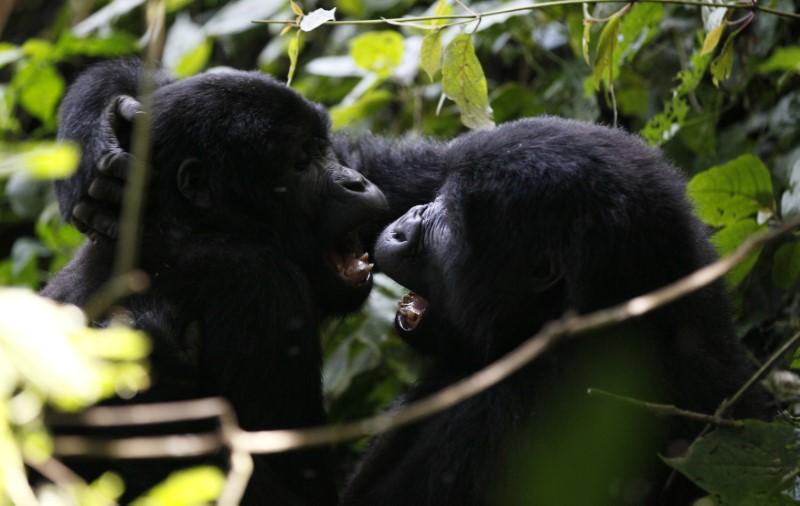
Uganda reports two new gorilla babies in Bwindi national park
Two new baby gorillas have been discovered in a Ugandan national park where a beloved primate named Rafiki was killed in June, a wildlife official announced Tuesday, saying the infants are part of a baby boom in the protected forest popular with tourists.
“For us it’s a sign of relief. We lost one. We got two. But, of course, losing one is bad enough,” said Bashir Hangi, a spokesman for Uganda Wildlife Authority, talking about the loss of Rafiki.
The babies are believed to have been born in the same week last month to two separate groups of habituated gorillas — primates that seem comfortable in the presence of humans — in the remote Bwindi Impenetrable National Park, according to wildlife authorities.
The International Union for the Conservation of Nature classifies the mountain gorilla as an endangered species.
Until November 2018, the same group classified mountain gorillas as critically endangered. The population of mountain gorillas has increased to allow for the less severe classification.
East Africa’s mountain gorilla population dropped sharply in the past century because of poaching, illness and human encroachment. In the past few years some of Uganda’s gorillas died of natural causes, with some falling from trees and others killed when males battled for territory or dominance. A major threat to the gorillas has been poaching.
A Ugandan man was sentenced to 11 years in prison last week over the killing of Rafiki, who went missing on June 1 and was found dead the next day, the apparent victim of a spear attack. An arrest was made on June 4, and authorities said the suspect was in possession of several hunting items, including a spear and snares. He told investigators that he killed the gorilla in self-defence before he was convicted.
Around 1,000 mountain gorillas live in protected areas in Congo, Uganda and Rwanda, serving as a critical source of tourism revenue for those countries. A gorilla tracking permit costs up to $600 in Uganda, and thousands of tourists pay each year. A similar permit costs upward of $1,000 in Rwanda.
Those funds are essential to protecting the animals because authorities can use some of them to invest in anti-poaching activities and help local communities.
But tourist numbers have dropped dramatically amid the coronavirus pandemic, raising concerns about how to protect vulnerable animals.






